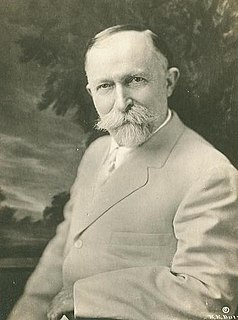A Quote by Lord Byron
'Tis pleasant, sure, to see one's name in print. A book's a book, although there's nothing in 't.
Related Quotes
I appreciate your giving my book -- and in no small way, me -- a chance. To thank you, I really wanted to acknowledge all of you in the book. Unfortunately, I didn't have enough room for each name. So I've put in a code name that stands for all of you reading this book. The name is 'Mom.' It will be our little secret. So when you see 'Mom' in the acknowledgments, you'll know I'm really talking about you. And don't let my mother try to tell you otherwise.
When Emily Dickinson's poems were published in the 1890s, they were a best-seller; the first book of her poems went through eleven editions of a print run of about 400. So the first print run out of Boston for a first book of poems was 400 for a country that had fifty million people in it. Now a first print run for a first book is maybe 2,000? So that's a five-time increase in the expectation of readership. Probably the audience is almost exactly the same size as it was in 1900, if you just took that one example.
When I choose the title [for my book], which was my favorite title, I felt sure there was going to be a dozen books maybe with that name already because it's so obvious to me that that's the message. I was surprised it hasn't been the title of a single book. Well, there is a Shel Silverstein children's book called Falling Upwards. But no one has chosen Falling Upward as a title and I'm very happy it's right on the cover.
Because he did not have time to read every new book in his field, the great Polish anthropologist Bronislaw Malinowski used a simple and efficient method of deciding which ones were worth his attention: Upon receiving a new book, he immediately checked the index to see if his name was cited, and how often. The more "Malinowski" the more compelling the book. No "Malinowski", and he doubted the subject of the book was anthropology at all.
We get no good By being ungenerous, even to a book, And calculating profits--so much help By so much reading. It is rather when We gloriously forget ourselves, and plunge Soul-forward, headlong, into a book's profound, Impassioned for its beauty, and salt of truth-- 'Tis then we get the right good from a book.
You will want a book which contains not man's thoughts, but God's - not a book that may amuse you, but a book that can save you - not even a book that can instruct you, but a book on which you can venture an eternity - not only a book which can give relief to your spirit, but redemption to your soul - a book which contains salvation, and conveys it to you, one which shall at once be the Saviour's book and the sinner's.
I'd say the purest experience for the movie is not to have read the book because I think when you've read the book you're just ticking off boxes. I think that after you see the movie, reading the book is a cool thing. I always say the movie's not meant to replace the book. That's ridiculous. I'm a huge fan of the book.







































